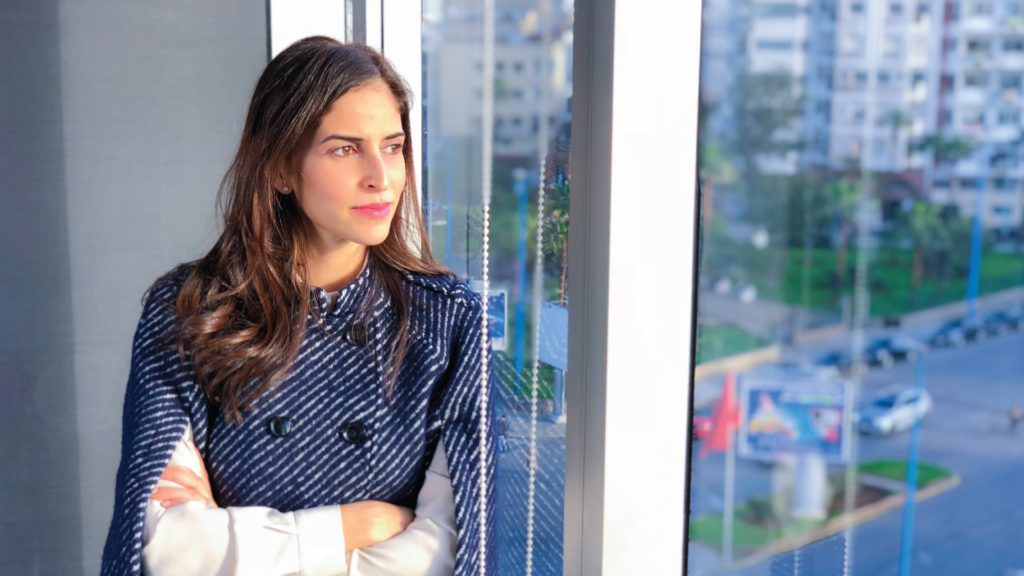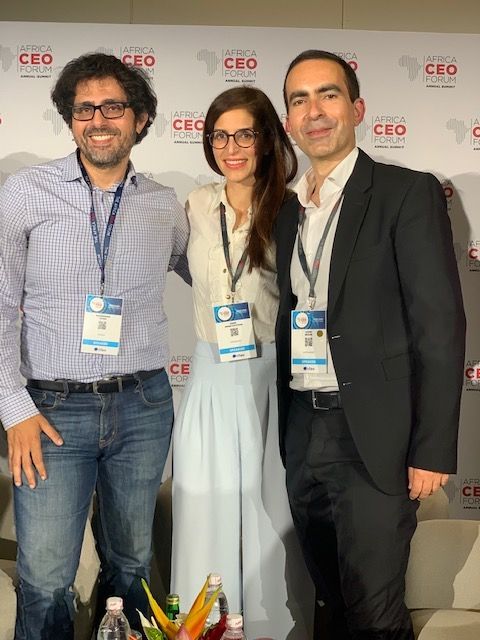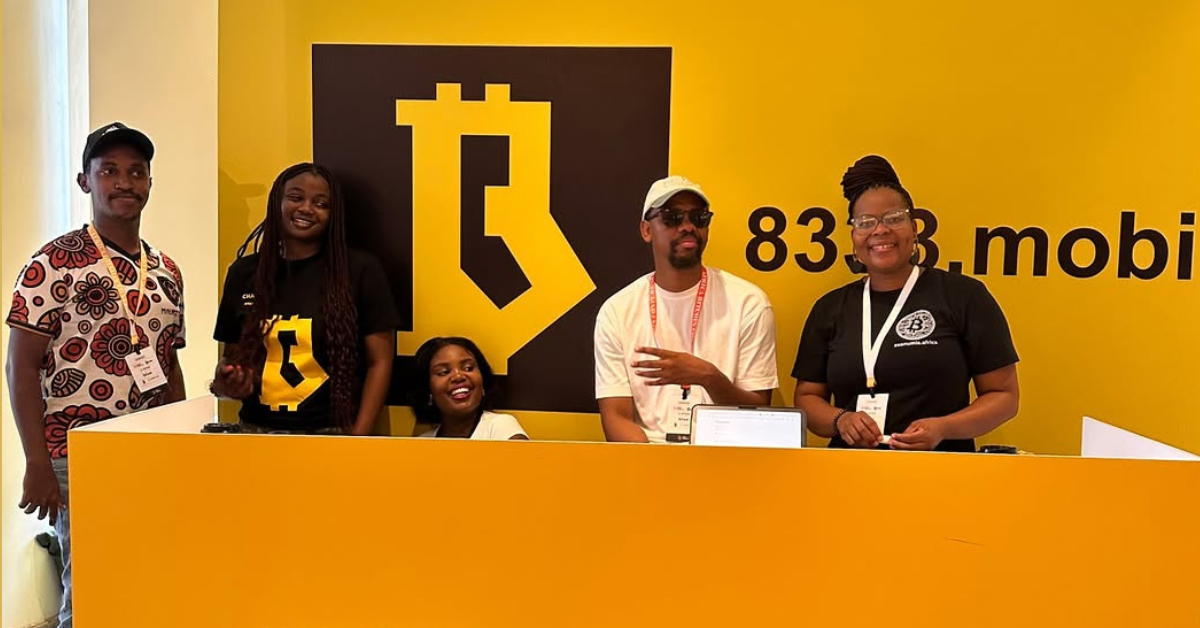Across Morocco, from Casablanca, the country’s largest city and commercial hub, to the country’s capital city, Rabat, and Safi, a small port city on the Atlantic coast with a population of less than 400,000 people, patients are getting medical consultation via audio and video calls. The same thing is happening across 2 other neighboring Maghreb countries: Tunisia and Algeria. Thanks to DabaDoc, a North African pioneer healthtech startup connecting all the stakeholders of the healthcare sector and making them seamlessly cross-accessible.
DabaDoc is not only a fire starter in the health care sector, it’s also an outlier in the business world. In a world where venture capital is the default source of funding for startups, DabaDoc’s co-founder and CEO Zineb Drissi Kaitouni has chosen an unpopular path to raise money and scale the company into 8 million users and 4 countries. I recently met with Kaitouni to understand what it feels like to have built the first healthtech startup in the Maghreb region of North Africa and potentially, the biggest on the continent.
It was a humid Wednesday afternoon in Abidjan, where the African CEO forum was happening. The entire lobby of the Sofitel hotel, the venue for the 2-day event, was buzzing with attendees in suit and tie, files or suitcases in one hand while shaking with the other, chit-chatting their ways into the conference room that’d host whatever session they were attending next.
In one conference room, called Kigali Room, Kaitouni, who was part of a 20-person club the forum tagged The Disruptors Club, stood on the podium, facing an audience of about 100 people, and spoke about what she’d been up to for the past 8 years. Kaitouni told a sorry story of the deteriorating state of the African health sector, and then a proud one that highlighted the passionate work her company has done building solutions to improve the sector.
After the speech, she and I shook hands and proceeded to find a spot to sit and chat. Everywhere in the lobby and in the conference rooms was packed and noisy. I suggested that we go out to the quiet poolside, but Kaitouni pleaded that we stay inside because outside was too humid for her.
We finally settled into one corner of the hotel lobby. “We just have to be louder than everybody else,” she said, jokingly, before tucking her phone away.
In 2014, when building healthtech startups was not commonplace in Africa as it is today, Kaitouni co-founded DabaDoc with her brother Driss Drissi-Kaitouni in Morocco, with a vision to digitise the entire healthcare system. The company started with the basic entry point of booking an appointment with doctors, and was able to gain lots of traction within a short time. The following year, it expanded into Algeria and Tunisia, with over 2,000 patients actively booking appointments with doctors across 75 different medical specialties on its platform.
DabaDoc was the right peg in the right hole, and all the available data points agreed to the fact. In North Africa, there’s only 1 doctor per 1,000 people. The ratio was even worse in Morocco; as of 2017, there were 7.2 doctors for 10,000 residents, one of the lowest ratios in the region. In Tunisia, the average was 12.7 doctors, and in neighboring Algeria, the average was 18. This deficit has made healthcare inaccessible to a great portion of the Maghreb’s population. And this is not peculiar to the region. It’s, in fact, a replicable challenge across the continent. However, Kaitouni believed that technology could increase accessibility by reducing time-wasting friction and enabling doctors to be more available and proactive in attending to patients. The company then launched a telemedicine (consulting doctors or the medical practitioner on the phone) and video consultation offering, a feature that would eradicate the time it’d take to commute to the hospital. At the time of launching, the feature were used by only a few medical practitioners that were quick to understand its value proposition.

Strategic funding over VC funding
While being bootstrapped, DabaDoc experienced steady growth, acquiring users, expanding its reach across its 3 markets, and improving its technology. In 2018, however, AXA Assurance Maroc, invested in DabaDoc, making the insurance company its first institutional investor. At that time, the company had already recorded over 2 million appointments booked through its platform. Kaitouni said this strategic deal opened DabaDoc up to a vast new set of users as they could now offer health insurance through AXA, which was the biggest health insurance provider in the region. This milestone was great, but not as great as the one the COVID-19 pandemic would usher in.
The pandemic disrupted a lot of sectors—for good and otherwise. DabaDoc was in the sector disrupted for good. As movement became restricted during the lockdown and people needed to meet up with their doctor’s appointment, DabaDoc, which was already helping with appointment booking and offering virtual consultation, became the go-to platform. “It was a case of readiness meets opportunity,” Kaitouni said. “The pandemic really helped us to democratise access to telehealth because everyone was calling us.” She said the growth was exponential and the company went from recording about 1,000 consultations monthly to doing over the same amount daily. The trend that lasted throughout the pandemic continues post-pandemic. While the number of telehealth consultations might have dropped because physical consultations are back, Kaitouni said some specialists stick with telehealth, except in critical cases where physical inspections are needed.
In June last year, Orange, the French telecoms giant, joined forces with AXA to acquire a majority stake in DabaDoc. Apparently, Kaitouni enjoyed the taste of strategic investment and was ready to double down on it with Orange. “We didn’t go for the VC funding. We went for the investment that brings strategic partnership because of all the synergies that they’re bringing to us,” Kaitouni said when asked why she hasn’t raised from VC like everybody else. DabaDoc is building a health care utopia the CEO believes is more achievable by collaborating with firms in possession of required infrastructure, community, and funds, rather than one with just the cash. The company now leverages AXA’s broad experience in curating bespoke health products and Orange’s technological expertise, payment infrastructure and massive distribution channel, to unlock rapid growth across the African healthcare ecosystem.

Kaitouni’s journey hasn’t been linear. She’s wandered across the globe in a divine search for purpose. From a promising career in finance to a failed ecommerce venture, to founding a thriving healthtech startup, she has indeed come a long way. She started her Wall Street career at Goldman Sachs as a fund manager in 2003, right after college, and left for Canada to pursue a master’s degree in finance in 2007. After 12 years of academic and professional expedition away in North America, she returned to Morocco in 2012 to help build a thriving digital economy. After some research, she decided to build for the sector that need urgent digital intervention the most—health care.
Kaitouni really has her skin deep in the game. She said the decision to bootstrap for 4 years before taking on funding was intentional. “We wanted to build a solid business that everybody would want to be associated with,” she said. Kaitouni has won several awards for her pioneering work in African healthtech space. She was one of only 2 African companies named Tech Pioneer by the World Economic Forum in 2019, the same year she became an Endeavor Entrepreneur.
In June, the company launched its Ivorian operation in conjunction with Orange. Kaitouni told TechCabal that they are launching in Cote d’Ivoire because it’s Orange’s biggest market. Soon, they will be present in all the markets the French telecoms giant operates. Leveraging Orange’s financial service might, DabaDoc will soon enable people in the diaspora to pay for consultation for their family members back on the continent.
Today, over 8 years later, DabaDoc is a healthtech powerhouse owned by Orange, AXA and the Kaitouni siblings. It now has access to Orange’s 135 million customers in Africa and the Middle East and millions of AXA customers. There’s currently no African startup with direct access to such huge consumer pool and pipeline, especially not in healthtech. With over 10,000 doctors and 8 million users, Kaitouni said only 4 other startups are currently on their level in the world: French Doctolib (raised $815 million); Indian Practo (raised $228.2 million); American Zocdoc (raised $375.9 million); and Egyptian Vezeeta (raised 71.5 million).
“But even you can see that we have the largest growth rail. We can grow as much as our partners and even more. Do you know what that means?” Kaitouni asked, proudly.




















